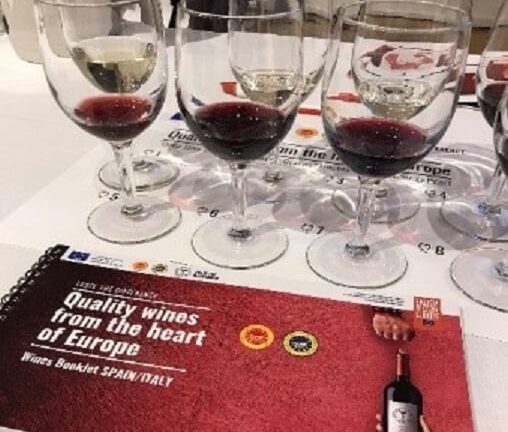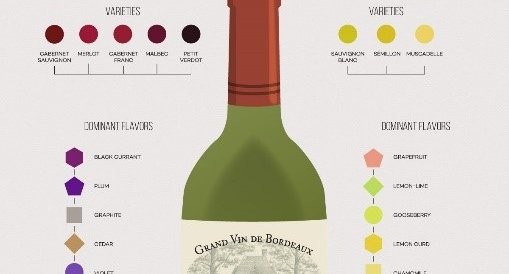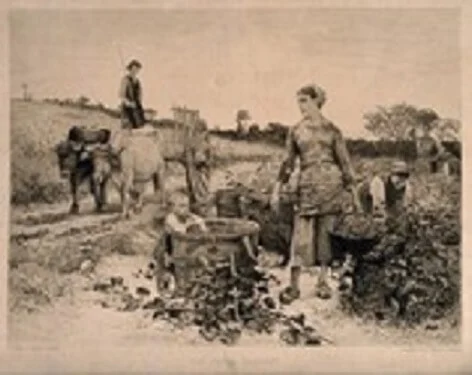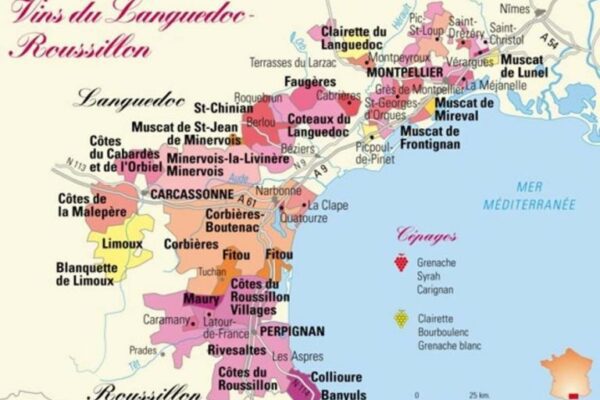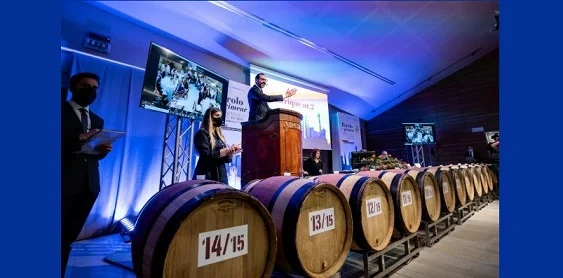I recently had the opportunity to be introduced to a selection of the unique and delicious wines from Spain.
The Master Class was directed by Alexander LaPratt who has been a Sommelier at Le Bernardin, DB Bistro Moderne, and the French Laundry as well as the head Sommelier for Chef Jean Georges Vongerichten. In 2010 LaPratt won the NY Ruinart Chardonnay Challenge (a blind tasting event). In 2011 LaPratt was selected the Best Sommelier in America at the American Sommelier Association competition and placed second in the Chaine de Rotisseurs Best Young Sommelier National Finals.
Wine & Spirits Magazine found LaPratt to be the “Best New Sommelier” (2011), and he represented the US in the Best Sommelier of the World Competition in Tokyo (2013). In 2014 he was the 217th person to pass the coveted Master Sommelier exam.

LaPratt is a member of the L’Order des Coteaux de Champagne, received the Diplome d’honneur from the Academie Culinaire de France, is the founding board member and treasurer for The Best Sommelier in the US Organization. In addition, LaPratt is co-owner of the Atrium DUMBO restaurant (Michelin recommended), and the recipient of the Best Award of Excellence from Wine Spectator (2017, 2018, 2019). He is also member of the faculty of the Institute of Culinary Education.
The Wines of Spain (Curated)
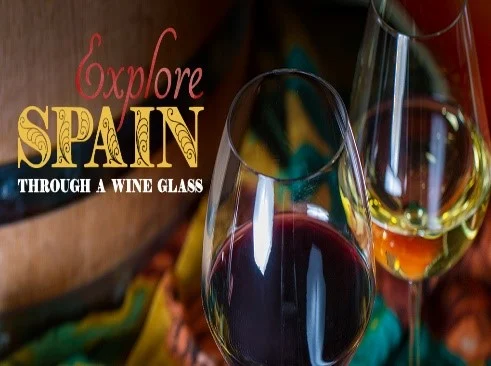
1. 2020 Gramona Mart Xarel·lo. Organic rose wine. DO Penedes. Grape variety: Xarel-lo Rojo.
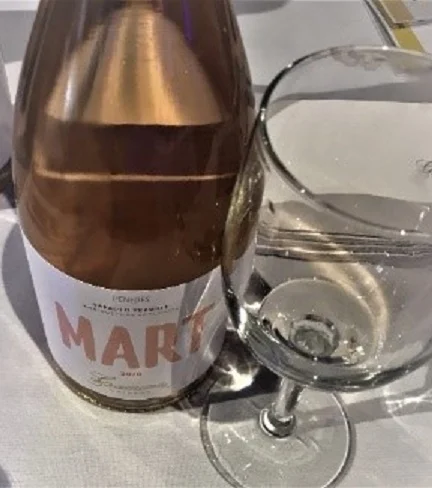
The Gramona family started their foray into wines in 1850 when Josep Batlle managed the vineyard for a local family. Pau Batlle (Josep’s son) was in the wine cork business and began selling the grapes and wines made from La Plana to sparkling producers in France who were dealing with the ravages of phylloxera.
In 1881, Pau purchased the La Plana vineyard, and started Celler Batlle realizing that Xarel.lo, the indigenous grape of Catalunya, was instrumental in his successful sale of wines to France because of its ability to make well-aged sparkling wines. Today the vineyards are operated by Bartomeu and Josep Lluis, establishing the cuvees for which the estate is noted.
The wines made at Gramona are farmed organically (CCPAE) and 72 acres are farmed biodynamically (Demeter). The family promotes sustainability in their products by reducing their carbon footprint using geothermic energy and recycling all the water used at the estate.
The wines from Gramona have a longer average aging than any other sparkling wine from Spain. Eighty-six percent of the sparkling wines produced in Spain are released after only 9 months while at Gramona the wines are aged a minimum of 30 months. The soils at Alt Penedes are primarily clay limestone while the soil closer to the Anoia river are more alluvial, and the soil near the Montserrat mountain is mostly slate.
From the organically farmed vineyards of Cavas Gramona, the red varietal, Xarel-lo, grows grapes that are cold macerated for 48 hours to extract a soft rosy hue from the skins. This is followed by fermentation in stainless steel tanks under controlled temperatures. From the tanks the wine goes into the bottle.
To the eye, pale pink with highlights. The nose is happy with subtle and fresh fruit, presenting the palate a smooth, round, gentle, medium-bodied experience with medium acidity. Delicate on the nose and the palate, it offers hints of peach, strawberry, and rhubarb. The finish offers acidity, and freshness with lingering hints of pink pepper. It makes a delightful aperitif, and will match perfectly with tapas, Caribbean or South American cuisine.
2. 2019 Les Acadies Desbordant. Organically farmed. Grape variety: 60 percent Garnatxa Negra (grenache), 40 percent Sumoli.
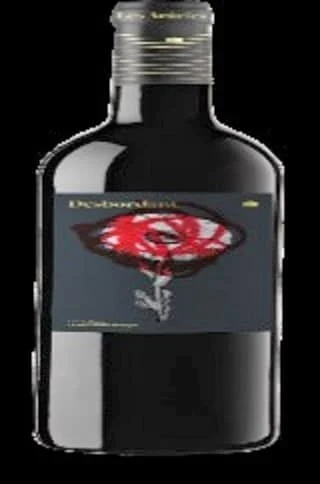
Mario Monros started Les Acacies as a small wine hobby in 2008 in Avinyo (northern Bages Plateau) at an altitude of 500 m. The winery spreads across 11 hectares surrounded by pine forests, oaks, holm oaks and shrubs (i.e., rosemary and heather) with the Relat river near the farm. The project expanded and became part of the DO Pla de Bages (2016), producing small quantities of artisan quality wines.
With the Designation of Origin Pla de Bages wineries continue the wine-growing tradition that started in the 19th century when the region contained the most vineyards in Catalonia. The wineries are mostly held by families, and all of them have their own vineyard, bringing a tradition, and personalized level of care to the vines that results in the excellent quality of the wines. Currently there are 14 wineries with the DO Pla de Bage.
Les Acacies uses a micro vinification process that permits small batch production allowing the winery to achieve the best expression of each variety and its terroir. Hand grape harvesting with small bins; 20 percent whole grapes with stems for earthy and spicy aromas blended. Aged in steel tanks as well as cement tanks, ovoids, and amphorae round the tannins and increase floral notes.
To the eye, red plum with violet hints while the nose finds intense red fresh fruit, and florals. The palate enjoys integrated tannins with a subtle sweetness. Pair with spicy sausage or lamb chops, or burgers.
3. 2019 Anna Espelt Pla de Tudela. Organic Grape variety. 100 percent Picapolla (Clairette).

Anna Espelt started working with her family’s estate, Espelt viticultors in DO Emporda in 2005. She studied habitat restoration and organic farming with an objective – to bring her values to the family 200 hectares farm. With her Pla de Tudela she pays tribute to thousands of years of interaction between her ancestors and the land they inhabit. The varietal is noted for its ability to retain acidity in even the warmest climates. Picpoul means “stings the lip,” referencing the grape’s naturally high acidity. The vineyard focuses on growing native varities from the Mediterranean and the Emporda: Grenace Carinyena (Carignan), Monastree (Mourvedre), Syrah, Macabeo (Viura) y Moscatel (Muscat).
Anna Espelt is hand-harvested, followed by 24-hour cooling, then partially destemmed and macerated with gentle pressing. Natural yeast is used for fermentation in the tank and aged for 6-months in concrete eggs. Certified organic (CCPAE), the terroir is composed of slate, patched with granite. Saulo is sandy soil that is derived from the decomposition of granite and slate is responsible for riper, more tannic and powerful wines.
To the eye, the wine presents a clear and bright yellow with hints of green/gold. The nose finds citrus, and wet rocks while the palate savors the crisp salinity expected from the minerality of Cap de Creus. Pairs with oysters, crab, clams, mussels, and sushi, grilled chicken, and pad Thai.
4. 2019 Clos Pachem Licos. 100 percent white organic white Grenache from Gandesa, DO Terra Alta. Clay-limestone soil.
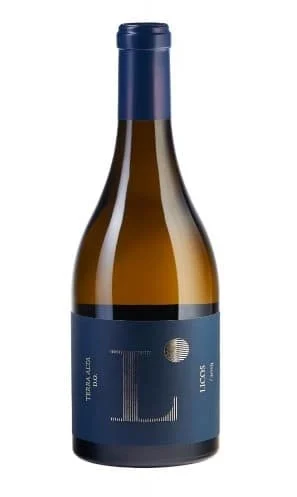
Clos Pachem is located in the center of Gratallops (DOQ Priorat). The vineyard is farmed organically following a biodynamic protocol. The cellar is developed using sustainable architecture, and designed by Harquitectes (harquitectes.com, Barcelona). Built with natural, elementary, and durable materials, the central area with the grand vault (for fermenting) has thick walls and air chambers to keep the building 100 naturally refrigerated providing complete hydrothermal stability.
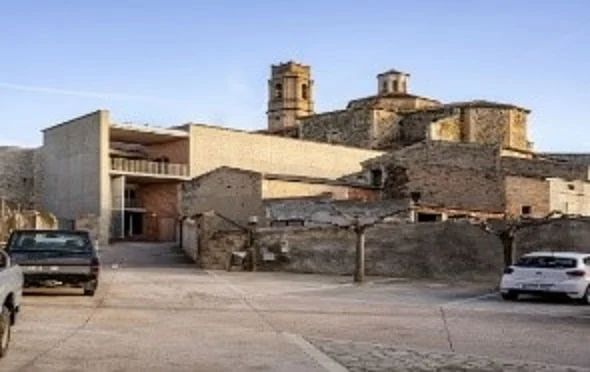
Grapes are harvested twice: August and September. Hand-harvested in 12 kg cases, with the first selection of the grapes made in the field, followed by a second selection in the winery. Grapes from different estates are vinified separately at controlled temperatures in stainless steel tanks. Alcoholic fermentation is done at a controlled temperature. Without malolactic fermentation, the vats are blended, and aged for 8-months in stainless steel tanks to preserve the acidity and freshness.
To the eye – green with golden highlights. The nose finds fragrance from fruit (apples and pears), limes and lemons, creating a clear and clean palate experience that is blended with notes of aromatic herbs and honey. The wine is balanced with good acidity. Stands strong – alone, or pair with fish and seafood, vegetables, and soft cheese.
At the Event


For additional information, click here.
This is a series focusing on the Wines of Spain:
Read Part 1 Here: Spain Ups Its Wine Game: Much More Than Sangria
© Dr. Elinor Garely. This copyright article, including photos, may not be reproduced without written permission from the author.

